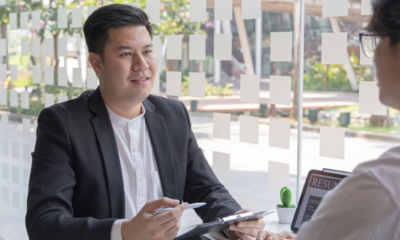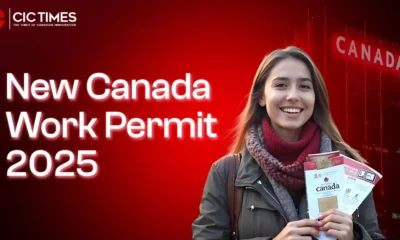
IRCC reducing Spousal Open Work Permits by more than 100,000 over the next three years
During a recent announcement regarding changes to Canada’s temporary resident programs, Immigration Minister Marc Miller announced several significant changes to the eligibility criteria for Spousal Open Work Permits (SOWPs).
On September 18, Minister Miller noted that the department will be introducing further limits on SOWP eligibility for spouses of students in doctoral and certain master’s programs, select professional programs, and certain pilot programs.
This includes limiting work permit eligibility to spouses of master’s degree students to “only those whose program is at least 16 months in duration.”
Schedule a Free Work Permit Consultation with the Cohen Immigration Law Firm
The changes are in addition to IRCC’s announcement earlier this year that SOWPs would be available only to the spouses of students in specific master’s or doctoral programs at Canadian designated learning institutions (DLIs), with some exceptions for undergraduate degrees in high demand.
This is further impacted by IRCC’s decision to include master’s and doctoral students in the cap imposed on the number of study permits that will be issued in 2025. The department says 12% of the 437,000 study permits allocated for 2025 have been set aside for these students. Master’s and PhD students are not included in the 2024 study permit cap.
While he did not specify what other changes may come into effect, he did say over the next three years the changes would result in 50,000 fewer SOWPs being issued to the spouses of international students.
Temporary foreign workers also affected
Changes are also being made for SOWPs outside of the international student program.
IRCC says it plans to limit work permit eligibility to include only spouses of highly skilled, specialized workers. These include C-suite executives, scientists, engineers, lawyers, professors, and technicians, or spouses of workers in sectors where there are key labour shortages.
These changes are expected to result in 100,000 fewer SOWPs being issued over the next three years.
How to apply for a SOWP
No official ministerial instructions have been issued regarding the official date of the tightened SOWP restrictions.
However, as of April 30 this year, spouses of international students may apply for a SOWP if their sponsor is an international student in a master’s or doctoral program or one of the following professional degree programs:
Doctor of Dental Surgery (DDS, DMD)
Bachelor of Law or Juris Doctor (LLB, JD, BCL)
Doctor of Medicine (MD)
Doctor of Optometry (OD)
Pharmacy (PharmD, BS, BSc, BPharm)
Doctor of Veterinary Medicine (DVM)
Bachelor of Science in Nursing (BScN, BSN, BNSc)
Bachelor of Education (B. Ed.)
Bachelor of Engineering (B. Eng., BE, BASc)
IRCC will also ask for one of the following:
a valid letter of acceptance from the sponsor’s DLI;
a proof of enrolment letter from their DLI; or
transcripts from their current program.
Applicants must also provide proof that they are participating in one of the eligible pilot programs, if applicable, and other documents such as proof of the applicant’s relationship to the student.
Those who are approved can expect their SOWP to be valid for the same length of time as their sponsor’s study permit.
Other changes for temporary residents
The changes to SOWP eligibility are just one part of a suite of measures IRCC has undertaken this year. Some of the most dramatic changes have occurred in the international student program, with the introduction of a cap on the number of study permit applications IRCC will process in 2024, and a further reduction on that number to come in 2025.
The department has also added a Canadian Language Benchmark (CLB) requirement for many Post-Graduation Work Permit (PGWP) applications. University graduates must be able to prove a CLB of 7 in reading, writing, speaking, and listening. College graduates must have a CLB 5.
He says more details regarding temporary resident levels will be revealed in the upcoming Immigration Levels Plan, set to be released by November 1 this year. It will be the first time temporary resident levels will be included in the Plan, which sets targets for the number of newcomers Canada will welcome in the upcoming three years.
Over 2 million temporary residents arrived in Canada in 2023. Minister Miller says the increased restrictions are part of IRCC’s commitment to reduce the number of temporary residents in Canada from 6.5% of the population down to 5% in the next three years.
He noted that Canada’s economy has recovered from the COVID-19 pandemic and measures introduced at the time to increase immigration and bolster Canada’s labour force, while effective at the time, are no longer necessary.
Schedule a Free Work Permit Consultation with the Cohen Immigration Law Firm
IRCC reducing Spousal Open Work Permits by more than 100,000 over the next three years
News
Ugandan Citizen Abducted, Held in Secret Detention for Three Months, Sparks Outrage and Calls for Justice

A disturbing new case of unlawful detention has surfaced, highlighting the ongoing human rights crisis in Uganda. A Ugandan citizen was reportedly abducted and held in a secret facility, known as a “safe house,” for three months, only to be released without charge or explanation. This incident, reported by NTV Uganda, has sparked widespread condemnation and renewed calls for accountability regarding human rights abuses in the country.
While the details surrounding the abduction remain unclear, reports indicate that the individual was taken without due process and held incommunicado—an action that has long been condemned by human rights organizations. The victim’s release, with no charges filed and no clear justification, has angered activists and citizens, who view this as yet another case of egregious abuse of power by the state.
“This is a recurring pattern,” said one human rights activist. “Abductions, secret detentions, and unexplained releases have become all too common in Uganda. These acts violate fundamental human rights and erode public trust in the justice system.”
The use of “safe houses,” unregistered detention facilities reportedly operated by security forces, has been a focal point in numerous allegations of torture and illegal imprisonment. Despite repeated calls from both local and international organizations for their closure and accountability for those involved, little action has been taken to address these violations.
This case underscores the urgent need for reform within Uganda’s security apparatus and greater accountability for human rights abuses. Observers hope that drawing attention to these injustices will spur concrete action to bring those responsible to justice and ensure the protection of basic human rights.
As frustration mounts, calls for both domestic and international pressure to hold the government accountable for such crimes grow louder. “One day, there must be accountability for all these crimes against our people,” stated one social media user, reflecting the sentiments of many Ugandans.
News
NUP Gathering Disrupted: Kyagulanyi Alleges Security Force Harassment and Arrests

National Unity Platform (NUP) President Robert Kyagulanyi has accused Ugandan security forces of using excessive force to disrupt a planned NUP gathering. The allegations were detailed in a statement shared on Twitter, following an event held to honor children of NUP supporters who were killed, disappeared, or detained for their political beliefs.
According to Kyagulanyi, security personnel, under the command of an officer identified as Asiimwe, carried out a preemptive operation early in the morning upon learning of the NUP’s plans. The forces allegedly stormed the premises, arrested workers, and deployed tear gas to disperse those present.
“The criminals under the command of one Asiimwe deployed early morning, arrested our workers, and threw tear gas into our premises. They’ve cordoned off the premises and blocked all people from accessing the place,” Kyagulanyi wrote.
Among those reportedly arrested were Saava Peter, Mudenya Samson, and Turyasingura Samson. Kyagulanyi claimed the detained workers were subjected to beatings and interrogated about their political affiliations, with security operatives labeling them as terrorists.
“These JATT operatives asked the workers who they support politically, branding them terrorists and criminals—their only crime being that they work with us. You can imagine the indignity!” Kyagulanyi lamented.
This incident adds to the growing tension in Uganda’s political climate, where opposition parties frequently accuse the government of stifling dissent. Despite the challenges, Kyagulanyi ended his statement with a message of defiance and optimism, proclaiming, “UGANDA WILL BE FREE.”
NUP Gathering Disrupted: Kyagulanyi Alleges Security Force Harassment and Arrests
News
Sudan Demands Apology from Uganda Over Army Chief Muhoozi Kainerugaba’s Threat to Invade Khartoum

Sudan has demanded an official apology from Uganda over “offensive and dangerous” comments made by the chief of Uganda army staff, who threated to invade Khartoum, the Sudan Tribune has reported.
General Muhoozi Kainerugaba, son of Ugandan President Yoweri Museveni and CDF of the Ugandan army, posted two comments on the X platform on Tuesday in which he threatened “to capture Khartoum” with the support of the US President elect Donald Trump after he takes office. The posts were deleted later.
“The government of Sudan demands and official apology from the Ugandan government for the offensive and dangerous comments of the army commander,” Sudan’s foreign ministry said in a statement that the Sudan Tribune said it has seen.
Sudan Demands Apology from Uganda Over Army Chief Muhoozi Kainerugaba’s Threat to Invade Khartoum









